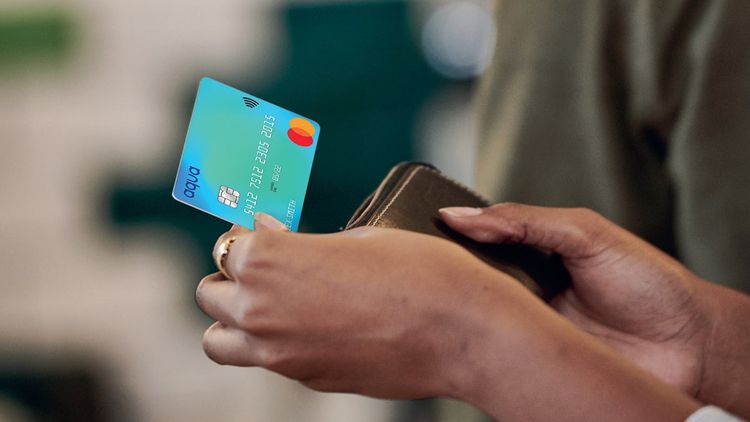In this article
How to use your credit card while travelling abroad
Heading abroad with a credit card? Find out how to use your credit card safely and affordably while travelling. Learn about fees, foreign currencies, and top tips.

Using a credit card on your travels can be a smart alternative to other payment methods. From stretching your spending power to earning rewards, they can be a useful financial tool for when you’re on the move.
But before you head to the airport with a credit card, there are a few things to be aware of, such as exchange rates, cash withdrawals, and foreign transaction fees. Here’s our guide to help you set off into the sunset knowing you’ve made the right choice.
Can you use your credit card abroad?
You can use a UK-issued credit card abroad provided the global payment network such as Visa or Mastercard is accepted by the merchant.
To check your credit card is set up to use overseas, it’s a good idea to contact your card provider before you set off. It might save you the hassle of having a transaction blocked by fraud detection systems.
You should also check the terms of your credit card to understand how everything works with currency exchange rates and foreign transaction fees. As convenient as it might be to travel with a credit card, you don’t want to return to unmanageable repayments.
Although it might be a concern to travel with a credit card, they generally offer more protection than debit cards due to their fraud protection features.
Depending on your chosen lender, you could also benefit from favourable exchange rates and no foreign transaction fees for purchases. Always check what you’re signing up to.
What are the fees for using a credit card abroad?
Before you decide to use a credit card abroad, there are some common charges you should consider. Depending on your type of credit card and how you use it abroad, either some or all the following fees will apply.
Cash advance fees
A cash advance fee is what you’re charged for withdrawing cash abroad. The fee is typically a fixed fee or a percentage of the amount you decide to withdraw, which varies depending on the terms and conditions set out by your lender. In most cases, you will also start paying interest immediately on any credit card cash withdrawals.
Non-sterling transaction fee
Otherwise known as a foreign exchange conversion charge, a non-sterling transaction fee is a charge applied by your card issuer to convert the local currency you’re using into sterling. A non-sterling transaction fee with an Aqua card is 2.95%.
Although credit card fees might feel reasonable, they can soon add up if you don’t manage your card responsibly. For example, with a fixed 4% cash advance fee, an £8 charge is applied to a £200 withdrawal on your credit card. Plus, you could also be charged interest.
Alternatively, you might decide to book an excursion while on your travels. With a 2.95% non-sterling transaction fee, a purchase of £100 could cost an additional £2.95 for the conversion service completed by your lender. It’s something to consider when using your credit card.
Should you pay in local currency or pounds?
Whether you’re paying for a meal in a tapas bar or buying a small souvenir for a loved one, you should always pay in local currency when using your credit card.
By choosing to pay in pounds, you’ll pay a dynamic currency conversion (DCC) fee – a service that converts an owed balance to your home currency at the point of sale.
Although the conversion may seem convenient, it means you’ll be paying more than you would if you selected local currency. It also means you could be agreeing to unfavourable exchange rates.
Tip: If in doubt, go local. Not only could it save you money, but it can also prevent unnecessary financial hassle on your holidays.
Can you withdraw cash abroad with a credit card?
Cash withdrawals with your credit card are possible when you’re abroad, but they often come with a fee.
What you’re charged will depend on the terms and conditions set out by your lender, but it’ll typically be a fixed percentage of the amount you withdraw. At Aqua, the cash advance fee is 5% of what you withdraw, or a minimum set fee of £4, whichever is higher.
You should also remember credit cards typically charge interest on cash withdrawals immediately, starting from the withdrawal date. When you tally up the expense, you might explore other options to withdraw cash abroad, such as a debit card or travel money card.
With both options, you can usually withdraw cash without paying a cash withdrawal fee. But to be certain that’s the case, it’s best to check the terms with your bank before you set off for the airport.
Tips for using your credit card safely while abroad
Before you use your credit card abroad, there are a few safety measures you can take for some added peace of mind.
Notify your card provider
A good starting point is to notify your card provider you intend to use your credit card abroad, with details about your travelling dates and destination. It helps to spot suspicious activity by notifying lenders when to expect overseas activity on your credit card.
Enable transaction alerts
Transaction alerts notify you whenever your credit card is used. Depending on your lender, you can be notified by SMS, email, or through your lender’s app – whichever works for you. Once everything’s set up, you’re better placed to detect fraudulent activity.
Have a backup payment method
As with any type of card, there’s always a risk it could be blocked or not accepted by merchants as a valid payment method. For that reason, it’s a good idea to travel with a backup – be it a debit card, travel money card, or another credit card.
Don’t use public Wi-Fi to access banking apps
Some scammers might impersonate a genuine Wi-Fi network to gain access to your banking app, or any other app with personal information. To stay safe, avoid using any app that contains sensitive information when connected to a public network.
Report lost or stolen cards immediately
To avoid the possibility of fraudulent transactions, you should report a lost or stolen card straightaway. Before you set off on your travels, get clear on how you report a lost or stolen card with your lender – be it through an app, online customer support, or by calling a customer service team.
For Aqua customers, our fraud team are always on hand to help with any suspicious activity. If something doesn’t look right, our security features, such as payment notifications or freezing lost or stolen card cards from the Aqua app, are just a couple of ways we keep you safe.
Provided it’s used responsibly, a credit card offers a safe and convenient way to spend abroad. Whatever card you decide to use on your travels, make sure you research the best foreign exchange rates and fees. For more information, feel free to explore our range of credit card options.
Failure to make payments on time or to stay within your credit limit means that you will pay additional charges and may make obtaining credit in the future more expensive and difficult.
Contributors


You might also like
Slide 1 of 3
How to budget for a holiday
Find out how to budget and save for the holiday of your dreams and how Aqua can help.

Using your credit card abroad
Find out how you can use your credit card to spend abroad safely, with tips and advice to utilising your card sensi...

Preventing credit card fraud
Get tips on how you can prevent credit card fraud and keep your card safe.
The smart way to build better credit
Aqua is the credit card that gives you the power to improve your credit score
